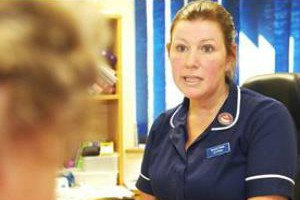GP practices in Luton working together in a primary care network have saved 3,000 appointments and £50,000, according to NHS England.
The model has also led to friends and family satisfaction with services being positive nine times out of ten, while complaints have fallen by 12%, the commissioning body said.
The claims come as NHS England’s long-term plan for the health service, published earlier this week, set out plans for all GP practices to become part of such networks.
In Luton, the new way of working has seen GPs make a number of changes including altering the types of healthcare professionals in the practice, offering alternative appointments where appropriate and introducing long term conditions clinics.
Groups of GP practices pool their skills and resources to provide patients with access to more health professionals including GPs, pharmacists, paramedics, physicians associates and specialist doctors, NHS England said.
It said this left GPs more free to spend time with patients with ‘complex needs’.
Dr Nina Pearson, GP at Luton’s Lea Vale Medical Group and GP lead for Bedfordshire, Luton and Milton Keynes Integrated Care System, said: ‘General Practice is under pressure, so we’re having to think creatively. Here in Luton, practices have been working together in groups covering 30,000 to 70,000 patients. Services such as community services, social care, and mental health are aligned and the practices themselves have been looking at how they can staff differently.
‘We now have a workforce that can see hope. They can see a possibility of working differently and being able to be in charge of their own destiny and to manage their workload. I would encourage everyone to start to work together with your neighbouring practices and really work as a team to deliver the needs of that population. It’s very satisfying and has absolutely brought back the joy of working in general practice.’
However the local findings come as researchers warned that there is little evidence to suggest that larger GP practice list sizes boost clinical outcomes or save money.
The paper, published in the journal Health Policy, found that trade-offs and unintended consequences meant that expected benefits from scaling up GP practices were hard to see on the ground. It recommended NHS England take caution in rolling out such plans and pay close attention to unintended consequences.
Case study: patient seen by paramedic instead of GP
One patient, Alexandra, had stomach problems, headaches and hot sweats and was needing weekly appointments with her GP.
When she moved to an area with a PCN she saw a paramedic at her GP surgery who was able to spend time with her, help her to identify the cause of her problems and refer her onto some local help groups for problems with anxiety.
She said: ‘I was put in touch with a paramedic within the surgery, and he had all the time in the world for me. I just sort of had that light bulb moment in my head where – I thought actually, yes, it made sense.
‘It feels so different from before. My GP is amazing. He’s more than happy to have as much time as I need to talk through whatever I need to talk to. He’s so supportive. I’ve been referred to Total Wellbeing in Luton which is run by the NHS and the council. I’ve also been referred to a Women’s Wellbeing Centre – which is run by local volunteers – so I’m getting help from every angle.’
Paramedic John Kirkby, at Lea Vale Medical Group, said: ‘I think people are surprised to find a paramedic in GP Practice – I’ve been at this particular practice for about two years now – and I’ve just been made a partner. We are very good at dealing with acute medicine, and we’re able to give antibiotics out, we’re able to treat common things that happen commonly. Often patients come in with multiple issues and if there’s multiple issues we can treat some of them but then signpost them to the appropriate clinician within the team we work in.’
Heidi Newton, managing partner at Lea Vale Medical Group, said: ‘We brought in paramedics, who are excellent on emergency care, acute, children – we brought in pharmacy because obviously the more complex a patient gets, the more complex medication they’re going to have – and then we looked at the new professions. So we’ve now brought in physician’s associates.’
Source: NHS England












